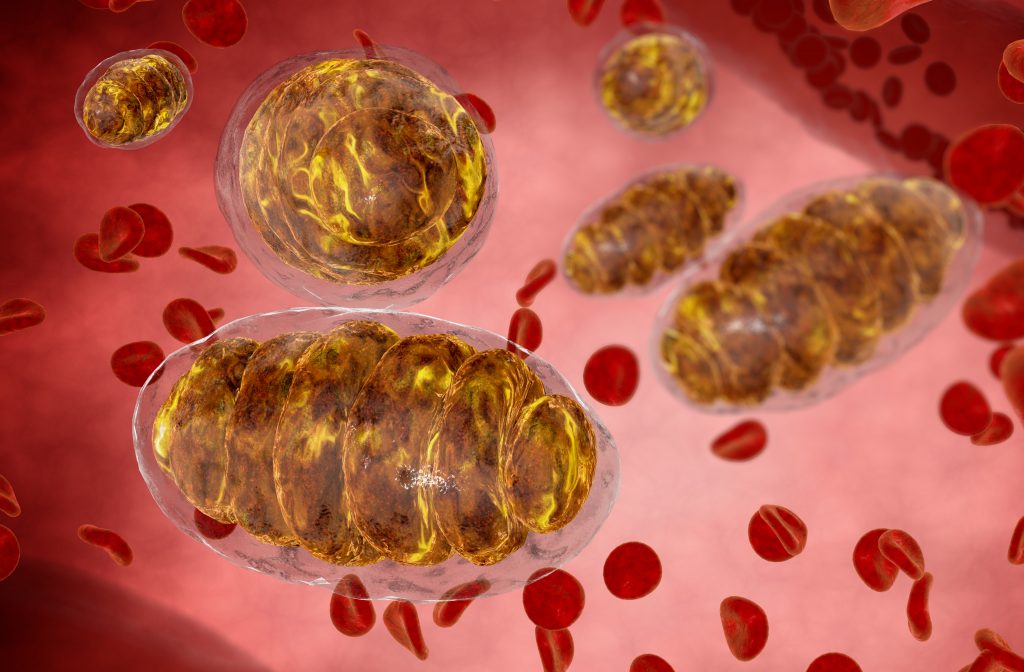
There is a growing body of evidence that points to the fact that cancer is a “metabolic disease.” You may have heard this statement before, but what does it really mean?
In a nutshell, it means that cancer is a problem that exists at the cellular level, in particular at the level of mitochondria within cells. Mitochondria are responsible for cellular metabolism and respiration; they are like the “lungs” of cells. They look like tiny rods and use oxygen and nutrients to create fuel for each of the cells. Mitochondria keep cells healthy and able to adapt to stress.
Here is why cellular mitochondria are so important to the development (and the healing) of cancer: No matter what stage of cancer you have or what type, all cancer tumors have some form of mitochondrial damage that goes along with it– guaranteed!
Mitochondria and Cancer
The traditional view is that cancer is a genetic (i.e. hereditary) disease. Those of you who read the Breast Cancer Conqueror blog regularly know by now what a false concept this is for 95% of the cancer cases out there. The new field of epigenetics has discovered how outside factors influence cellular expressions that can lead to all kinds of diseases—and also how we can use these factors for our own healing.
Breast Cancer Conqueror blog regularly know by now what a false concept this is for 95% of the cancer cases out there. The new field of epigenetics has discovered how outside factors influence cellular expressions that can lead to all kinds of diseases—and also how we can use these factors for our own healing.
Back in the 1920’s and 30’s, Dr. Otto Warburg proved that cancer is caused by defects in cellular metabolism (i.e. mitochondria defects). He was also the first to discover cancer’s insatiable appetite for sugar (i.e. glucose). Modern pioneers in the field of cancer research, including cellular metabolism and nutritional ketosis expert Dr. Thomas Seyfried of Boston College, are taking Dr. Warburg’s findings a step further with new discoveries.
Health visionaries like Dr. Seyfried do not consider different types of cancer to be unrelated. He and other experts view all cancers as one disease in which damaged mitochondria prefer glucose (as well as glutamine) as a fuel source.
Research has concluded that healthy cells do best when they can burn fat as fuel, but they can also use almost any substance to keep themselves alive and energized. Cancer cells, on the other hand, need glucose to survive. Nothing else will do.
And this fact is what many say is cancer’s “Achille’s Heel.” Simply put, get rid of sugar, start the process of burning fat for fuel, strengthen those healthy mitochondria, and your body can heal, according to Dr. Seyfried and others. If you are a research nerd like I am, his book, Cancer is a Metabolic Disease is pretty awesome.
6 Ways to Strengthen the Mitochondria and Support Healthy Cells
So what does this new information mean to you and your Healthy Breast journey? Below are 6 ways that YOU can make sure your mitochondria and your cells in general stay healthy.
- Cut the sugar. This goes without saying. Over 100 years of research has proven that cancer feeds on sugar so don’t feed it! This goes for high-fructose fruits like many tropical fruits as well as simple carbs like pastas and potatoes since they also contain a high glycemic load.
- Exercise. Exercise stimulates something called “mitochondrial biogenesis” in the muscles as well as in the organs and the brain. Mitochondrial biogenesis is basically the process through which cells increase mitochondrial mass and the production of ATP (i.e. energy). This is one of the reasons why exercise has been shown to reduce cancer risk and also improve survival after diagnosis.
-

Poly MVA is an excellent source of alpha lipoic acid Consider key supplements. Studies show that “mitochondrial nutrients” such as alpha-lipoic acid, acetyl-l-carnitine, biotin, nicotinamide, riboflavin, pyridoxine, CoQ10, resveratrol and taurine can promote improved cellular respiration and metabolism.
- Restrict calories. When you eat less food and consume less calories, you extend the life of the mitochondria within each cell. This is because calorie restriction can lead to “autophagy,” a process of “deep cleaning” within the body. During a period of calorie restriction or fasting, the immune system begins to “clean house,” gobbling up old and sick cells and disposing of them. Again, this is one of the reasons why eating less has shown in numerous studies to lead to slower tumor growth and the prevention of metastasis.
- Try a Ketogenic Diet. In addition to cutting sugar and eating less, increasing evidence indicates that upping your intake of healthy fat, lessening your protein intake (and keeping it to healthy sources such as grass-fed, antibiotic free meats, eggs, and vegetarian sources) as well as cutting carbs in general can also help your mitochondria by stimulating a state called “ketosis” in your body. I am not yet convinced that a Ketogenic is beneficial for long term health, but for a short term therapy, the evidence is mounting in favor of it. If you feel stuck in your healing journey, consider looking at the Ketogenic Diet.
- Get more oxygen! If sugar feeds cancer, then oxygen weakens it! Also remember that healthy cells thrive in an oxygen-rich environment. Consider modalities such as the Hyperbaric Oxygen Therapy, Liveo2 equipment or simply make it a habit of breathing deeply every day.
This last simple action of remembering your breath will not only help cellular health but will also elicit the “relaxation response” within your body, which will turn on your healing hormones and perhaps even increase your ability to reverse cancer even more!
I had advanced ovarian cancer diagnosed 18 months ago and when I found out sugar caused it I stopped immediately and had no sugar since. Life was far more important to say ‘I cannot give up something that is probably killing me”. I makes me sad when I see people say that.
I am taking Clar8ty, and on a mostly except for eggs, vegan diet, lots of juicing and I made a list of top 12 foods that either cause apoptosis, slow development of tumours, or inhibit initial onset of tumours. Every day food. I have resveratrol/ellagic acid, flax seed oil in pea protein smoothie with cacao, cacao, psyllium, astragalus. I have Essiac tea mixture, blupereum mix, modified citrus protein, curcumin, black pepper, cayenne, olive oil, carrots raw broccoli, spinach, tomatoes, green tea.
And hope for the best! but knowing I have done my best. So far ok just inflammation is an issue but the blupereum hopefully with deal with that.
Just thought I would share with others in same situation. I have tried to deal with cancer stem cells. And that cancer is cellular. This article is excellent and will help me a lot.
v. interesting and informative article. Please keep sharing Dr. V
Circulation in the tissues becomes impaired for many reasons but ultimately it is reduced oxygen levels which cause cells to shift their metabolism as a survival mechanism. Pyruvate produced from sugars converts into lactic acid typically 19 times normal when one exercises. When this acid is excreted from the cells into the extracellular fluid, ie., lymphatic fluid, the resultant chemical reaction produces a salt known as sodium lactate. This material is hyper-alkaline. The blood and lymph become excessively alkaline which becomes aI tera ferma for the proliferation of pleomorphic entities to shift stages from yeasts into fungi which is cancer.